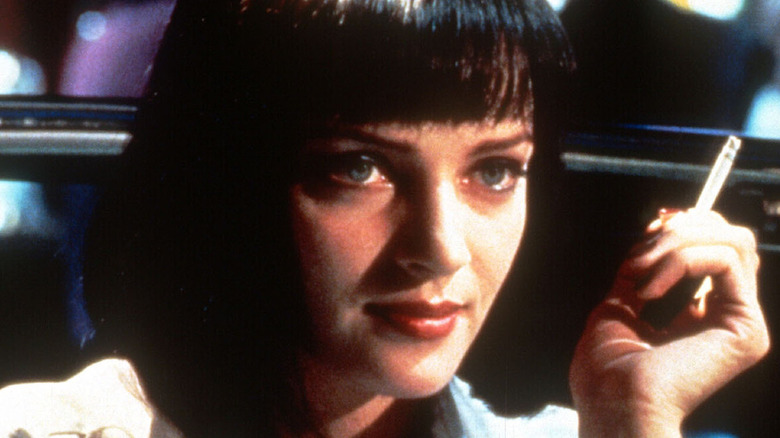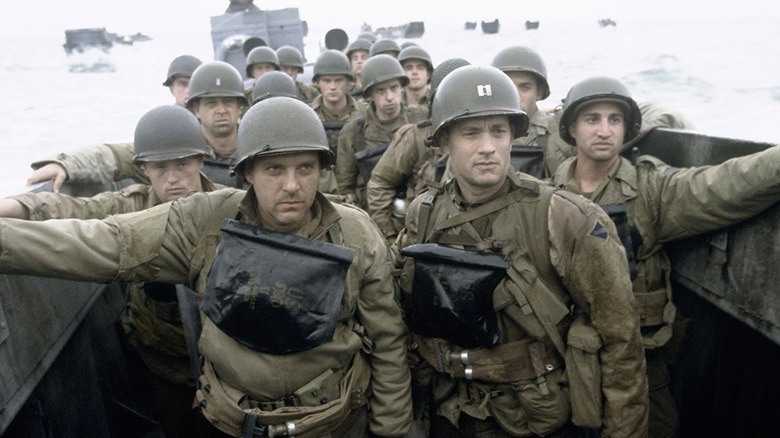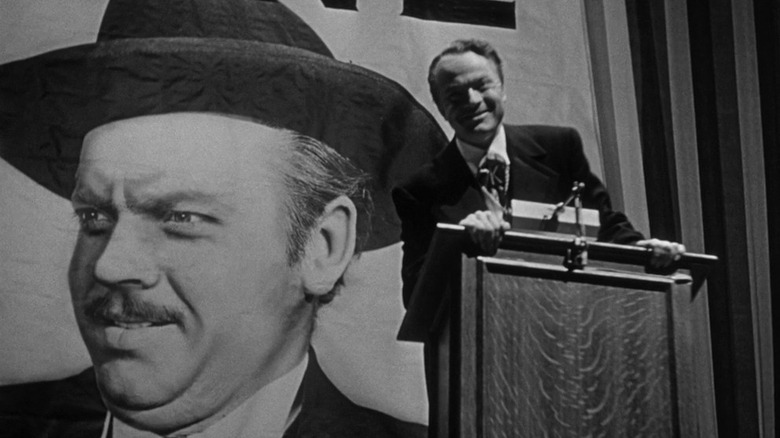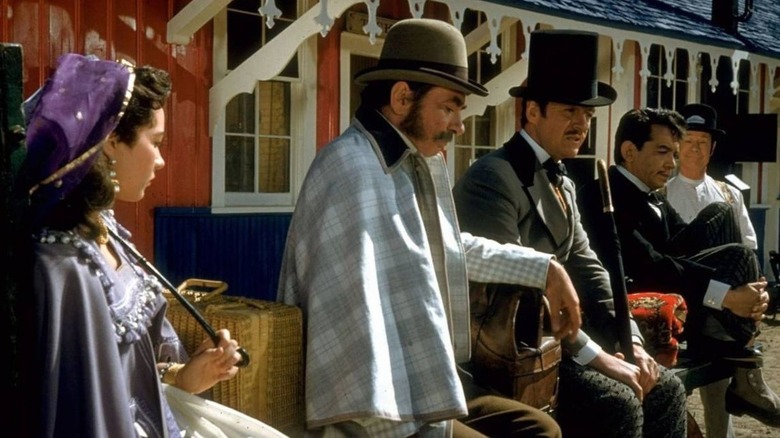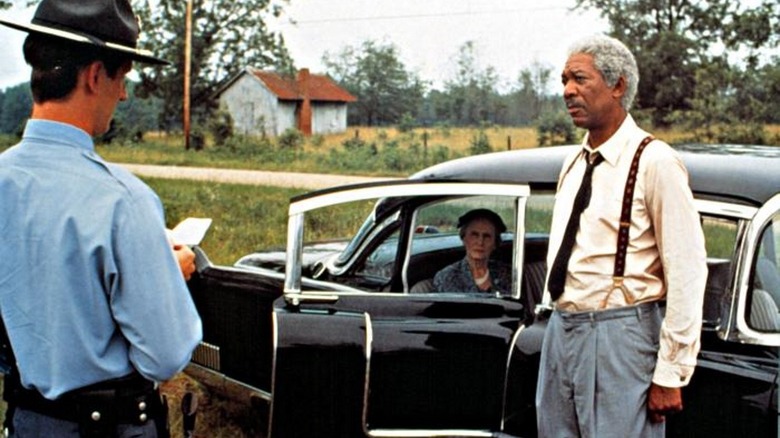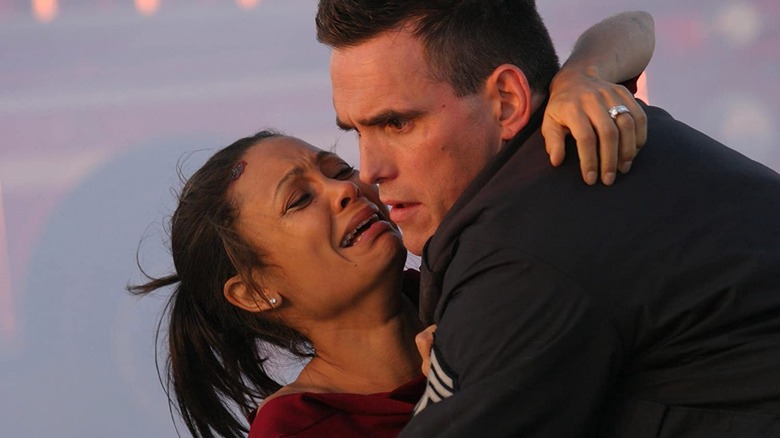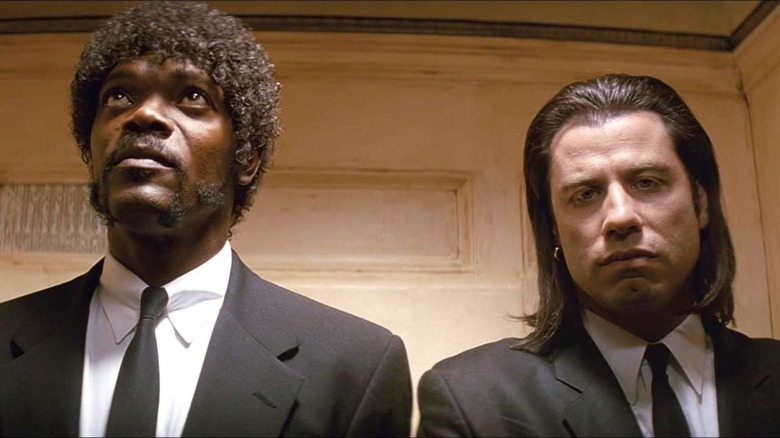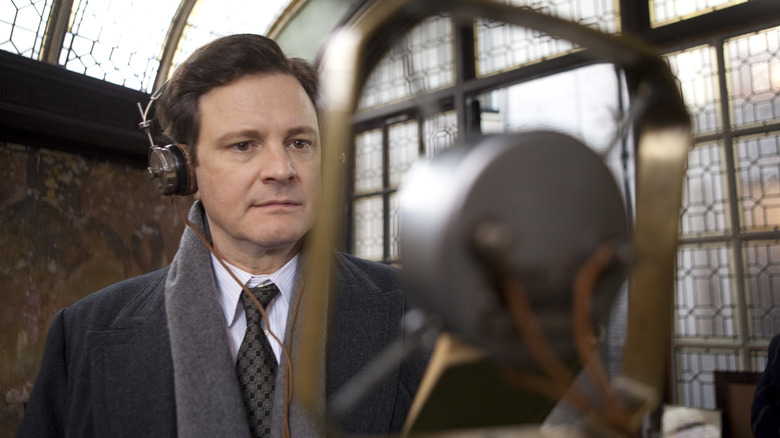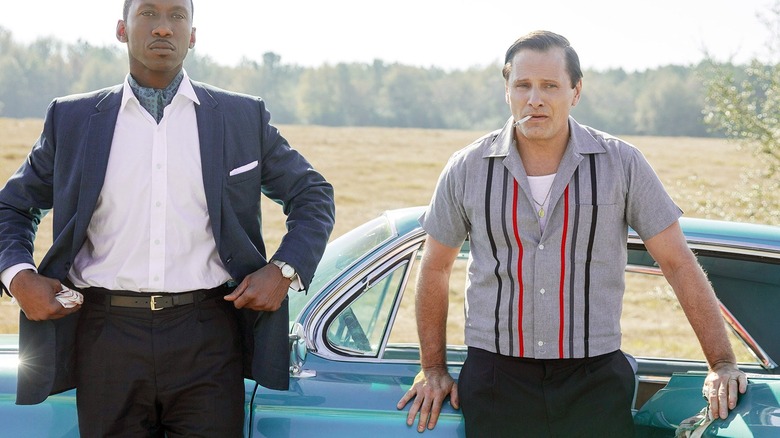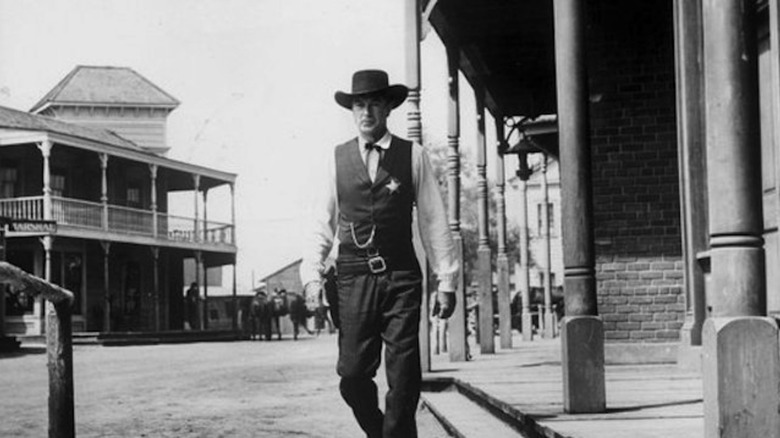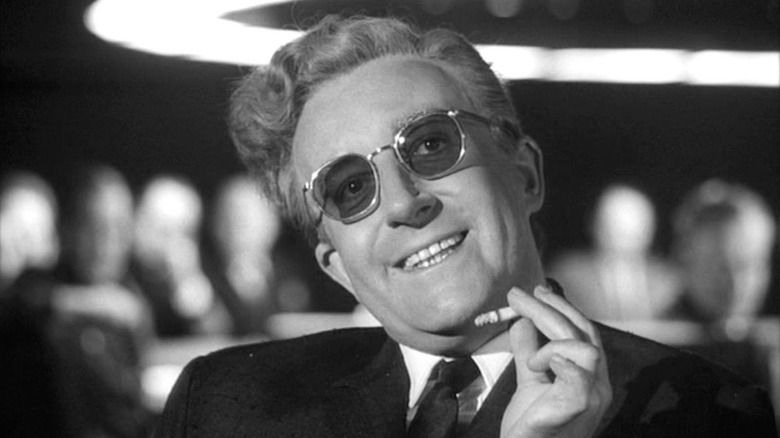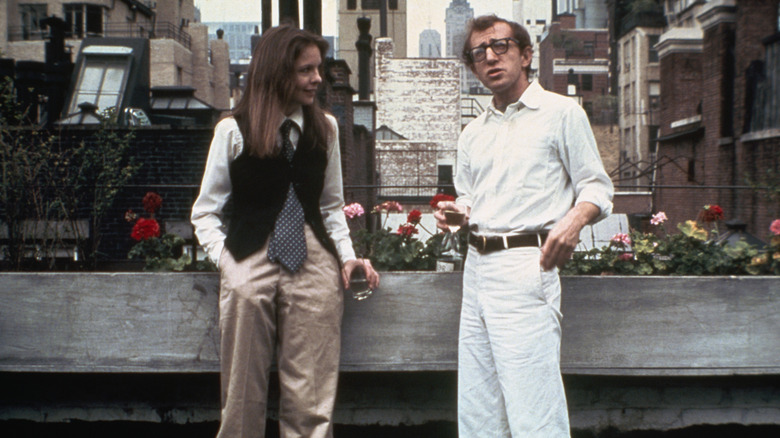The Biggest Best Picture Oscar Snubs Of All Time
There are only a handful of truly inevitable things in this world. The sun rises in the morning. Water is wet. And there will be plenty of controversy over who wins Best Picture at the Academy Awards. When it comes to Best Picture victors at the Oscars, there's bound to be a discussion not only on whether or not the "right" movie won, but what other films got "snubbed" in the category. Those films that get snubbed can end up becoming cinematic martyrs while eventual Best Picture winners over "worthier" films can get painted as overrated dreck. Admittedly, this concept is a bit on the ridiculous side. After all, to determine a film's reputation by whether or not it won a trophy at an awards show can be a reductive process that erases not just the contributions of artists who worked on the project, but the larger thematic ambitions of these features.
Still, even if it's less than ideal to boil down a film's worth to whether or not it got snubbed for Best Picture at the Oscars, it's certainly a phenomenon that's taken root in film discourse. Over the 90-plus Academy Awards ceremonies held to date, several notable instances of controversial movies winning the Best Picture trophy over more universally beloved titles have not only occurred but become something tantamount to legend. Seeing this phenomenon stretch back decades reinforces once again how unavoidable it is that the Oscars will drum up some contention yet again.
Shakespeare in Love over Saving Private Ryan
One of the most notable Best Picture snubs occurred in 1999 at the 71st Academy Awards, where "Shakespeare in Love" and "Saving Private Ryan" went head-to-head (against three other movies) for the Best Picture Oscar. "Saving Private Ryan" was so much the favorite to win that year's award that the book "The Men Who Would Be King" observed that the presenter for Best Picture was none other than Indiana Jones himself, Harrison Ford. The choice of Ford seemed tailor-made for a great photo op if Spielberg took home his second Best Picture trophy.
However, this never came to be, as "Shakespeare in Love" won the Best Picture Oscar instead. In the years since this achievement, a dark cloud has sprung up over this event due to the film's producer, Harvey Weinstein. In 2017, Vanity Fair published an extensive piece exploring the "Shakespeare in Love" awards season campaign Weinstein orchestrated to get this romantic drama on the radar of Oscar voters. This included bad-mouthing rival films like "Saving Private Ryan" and engaging in other techniques that have grown controversial as the years have gone on. This doesn't make "Shakespeare in Love" an evil movie, but it does cast a pall over the film, regardless of which Oscars it won or what movies it beat out.
How Green Was My Valley winning over Citizen Kane
In the vast majority of Oscar ceremonies, it's impossible to know what did or didn't inform what won and what lost. The fact that Oscar ballots are kept under lock and key means that the general public isn't privy to what informs the decisions these voters make. That's just as true for the 14th Academy Awards as any other ceremony, but here it's also easy to see one particular outside circumstance looming over that year's Best Picture crop.
William Randolph Hearst had been working his hardest throughout 1941 to suppress the release and even existence of the Orson Welles film "Citizen Kane," a motion picture that was allegedly about a fictionalized version of Hearst. Though Hearst had been laboring overtime to keep "Citizen Kane" away from the public, the film still scored nine Oscar nominations, including Best Picture. But at the ceremony, "How Green Was My Valley" took home the top prize. There's no proof Oscar voters were influenced or swayed by Hearst, but Welles getting booed at the ceremony at the very mention of his name does indicate that Hearst's negative reception of "Kane" had at least somewhat worked its way into Hollywood's biggest night. Of course, in the years to come, "Citizen Kane" would have the last laugh as the film ended up getting a rehabilitated reputation that included recognition of it as one of the greatest movies of all time.
Around the World in 80 Days winning over Giant
Even today, several classic 1950s movies, including some Best Picture winners, find themselves influencing pop culture. Just look at how the iconic ballet sequence that ends "An American in Paris" inspired a similar closing sequence in the 2016 hit musical "La La Land." However, one of the far less influential features of this era is "Around the World in 80 Days," which managed to win Best Picture along with four other Oscar victories at the 29th Academy Awards. Ask someone today their favorite moment or line from the film, and you'll likely get blank stares or someone asking if you're talking about the movie with Jackie Chan.
Though its appeal may be lost to modern viewers, writer Emmanuel Levy provides important historical context that "Around the World in 80 Days" arrived in movie theaters in 1956 as not just a film, but an extravagant experience complete with elaborate sets and footage from countries across the planet. Such feats were enough to give "80 Days" a sizeable enough reputation to beat out its Best Picture competitors, including the much more famous "Giant," the last James Dean star vehicle. The opportunity to pay tribute to this actor's swan song was eschewed in favor of one 1950s Best Picture winner that hasn't endured.
Gandhi winning over E.T.
The morning after they occurred, The New York Times described the 55th Academy Awards as a ceremony "devoid of surprises." This included the eventual Best Picture victor that year, as the Richard Attenborough drama "Gandhi" took home the coveted award. It triumphed over "E.T.: The Extra-Terrestrial," a now-classic Steven Spielberg movie. Though images of bikes flying in front of the moon or boxes of Reese's Pieces are now inextricably linked to this family film, "Gandhi" hit more of the buttons that the Academy tends to like getting pressed. A drama chronicling a real-life figure, complete with a feel-good message about love and harmony, has always been popular with this awards body.
In the decades since "Gandhi" took home the prize, this Best Picture decision has been labeled by writers as "a travesty" while even Attenborough himself questioned the choice of "Gandhi" over "E.T." In the book "Steven Spielberg: A Biography," Attenborough even recalled that, after winning Best Director for "Gandhi" at the Director's Guild of America awards ceremony, he went over to Spielberg and told him the award should have gone to him instead. That didn't help either Spielberg or "E.T." at the Oscars a few weeks later, but at least the director of the eventual Best Picture winner knew what time it was.
Driving Miss Daisy winning over My Left Foot
When it comes to the 65th Academy Awards, the most talked-about snub at this ceremony is how "Do The Right Thing" was not nominated in either the Best Picture or Best Director categories. This was a disappointing development that served as a harbinger of how often Spike Lee films would be excluded from future Oscar ceremonies. However, "Do The Right Thing" getting excluded wasn't the only controversial outcome of this ceremony. Just ask the Daniel Day-Lewis vehicle "My Left Foot."
While the widely-acclaimed "My Left Foot" was nominated in the Best Picture category, it ended up losing to "Driving Miss Daisy." This Best Picture winner proved to be a divisive victor in the years ahead, with many lambasting the decision as going for a safe choice over more challenging fare. It didn't help that "Daisy" didn't even get into the Best Director category, making it the first Best Picture winner to miss a nomination there since "Grand Hotel" in 1933. Even the film's leading man, Morgan Freeman, would recognize the shortcomings of this Best Picture winner, admitting that taking on the lead role in "Driving Miss Daisy" was "a mistake." The debate that ensued from this choice was so pronounced that, in 2015, The Hollywood Reporter revealed that Oscar voters from this era would have awarded "My Left Foot" the Best Picture trophy instead.
Crash winning over Brokeback Mountain
Once Ang Lee secured the Best Director Oscar at the 78th Academy Awards, it looked like his film "Brokeback Mountain" had the Best Picture Oscar in the bag. After all, 12 of the previous 15 movies that had won Best Director at this ceremony went on to score simultaneous victories in the Best Picture category. The fact that this Western romance drama had scored significant Best Picture wins at other preceding ceremonies like the British Academy Film Awards also seemed to be setting the stage for one of the best-reviewed movies of 2005 to take home the big prize.
However, "Crash" would end up scoring the Best Picture Oscar that year, in the process delivering one of the great Academy Award snubs of all time. Exacerbating the disappointment was that "Brokeback Mountain" seemed poised to be among a rare breed of Best Picture winners centering on queer characters while also being in a similarly scarce category of Best Picture winners helmed by a filmmaker of color. Outlets like The Los Angeles Times derided the Academy for going with what looked like a more conventional choice and the reputation of "Crash" quickly became defined by a widely criticized Oscar victory more than anything else. Sometimes, the Best Director Oscar win can help predict the future. Other times, however, it has no bearing on the Best Picture winner at all.
Forrest Gump winning over Pulp Fiction
With "Pulp Fiction," Quentin Tarantino arrived as a household name filmmaker with only his second directorial effort. This unique non-linear film proved to be irresistible to film geeks and the general public alike. Similarly, "Forrest Gump" signaled that Robert Zemeckis had the chops to deliver a drama that could resonate with the general public after his extensive experience with commercial entertainment. These two movies were integral parts of their respective directors' careers ... but only one would go on to win the Best Picture Oscar.
"Forrest Gump" would end up being the Best Picture victor among the duo. A controversial choice, "Forrest Gump" was criticized as an ode to the past whereas "Pulp Fiction" was distinctly something new and exciting in how it approached violent genre entertainment. However, between the two, "Forrest Gump" was more in line with traditional Best Picture winners of the past, not to mention that "Gump" won five other Oscars outside of Best Picture versus "Fiction" scoring only one other win for Best Original Screenplay. "Forrest Gump" clearly resonated with the Academy voters, to the point that it could beat out a groundbreaking movie like "Pulp Fiction."
The King's Speech winning over The Social Network
One of the most contentious Best Picture wins of the 21st-century, "The King's Speech" was the victor at the 83rd Academy Awards. After the previous year's more challenging indie winner "The Hurt Locker," "The King's Speech" was a return to the conventional crowd-pleaser mold of Oscar winner, the kind that had dominated the ceremony in the 1990s. Among the films it edged out for the award was "The Social Network," David Fincher's feature about Mark Zuckerberg's creation of Facebook.
It's not easy to see where the negative stigma from "The King's Speech" winning over "The Social Network" comes from. "The Social Network" was something new about people who were living in and shaping the 21st century. It was conscious of the online world and how it would bleed over into reality. "The King's Speech," meanwhile, was a homage to an older age of cinema, focused on members of the Royal Family with a friendly tone reminiscent of several classic Best Picture victors. This wasn't so much a feud between two types of movies as it was a duel between the old and the new. While more recent Oscar ceremonies have dared to recognize more unorthodox projects like "Nomadland" and "Parasite," the safer bet won the day back in 2011, inspiring countless thinkpieces about this decision to this day.
Green Book winning over Roma
For one moment, it looked like history was about to be made at the 91st Academy Awards. When Alfonso Cuaron won the Best Director Oscar for "Roma," it was already a seismic turn of events: the first instance in history of a foreign language nominee scoring a victory in this category. However, it was extra exciting since it seemed to be teeing up "Roma" to secure a Best Picture win. This would make the project the first foreign language movie to win Best Picture as well as the first streaming feature to take home that trophy.
This especially seemed likely since the biggest competitor to "Roma," "Green Book," didn't even get nominated for Best Director. At that point, only four movies had won the Best Picture without also getting into the Best Director race, with only two occurring since the 1930s. The stage seemed to be set for "Roma" to make all kinds of history at this ceremony ... but then "Green Book" managed to score a Best Picture win. In the wake of this unexpected development, Emily St. James of Vox observed how "Green Book" was very much in the crowdpleaser mold of classic Best Picture winners. Whatever the reason, "Green Book" swooped in and took home a Best Picture Oscar many counted on going to "Roma."
The Greatest Show on Earth winning over High Noon
The question of how "The Greatest Show on Earth" managed to score a Best Picture win against a line-up of beloved motion pictures, including the legendary "High Noon," has proven so enduringly tantalizing to film buffs that Gold Derby even dedicated a whole essay to this quandary as late as 2021. Given that "The Greatest Show on Earth" wasn't even well-received in its initial theatrical release, let alone viewed through a contemporary lens, it's not surprising that discourse has emerged pondering how this circus drama could have beaten out "High Noon."
One of the most intriguing theories suggests that the ongoing Red Scare at the time of this ceremony influenced the decision. A New York Post piece by Larry Getlen recalled how, once "High Noon" scored its Oscar nominations, conservative members of Hollywood began crusading against the film to ensure it wouldn't win Best Picture that year. After all, not only was "High Noon" meant to be an allegory for standing up to the House Un-American Activities Committee (HUAC), but artists involved in the production, like screenwriter Carl Foreman, were either blacklisted or on the verge of being blacklisted. Though it wasn't entirely shut out from Oscar wins at the ceremony, the theory goes that "The Greatest Show on Earth" could have appealed to Academy voters as a cozier choice that wouldn't rock the boat.
My Fair Lady winning over Dr. Strangelove
If you wanted to nab the Best Picture Oscar between the late 1950s and 1967, releasing a glossy musical would be as close as you could get to delivering a surefire winner. "Gigi," "The Sound of Music," "Oliver!" and "West Side Story" all took home Hollywood's most prestigious award during this era. Another musical Best Picture winner from this period was "My Fair Lady," which garnered largely positive reviews even if there were a handful of critiques over the casting of Audrey Hepburn in the lead role despite her inability to carry a tune. However, what makes this win questionable for some is that it managed to defeat "Dr. Strangelove" that same year for the Best Picture Oscar.
Kubrick's satire of Cold War-era politics was a hysterical piece of cinema as humorous as it was insightful. Regardless of personal opinions on the films, it's easy to determine which of these two titles was more relevant in the 1960s and, by proxy, more worthy of a Best Picture win. However, comedies haven't been a go-to genre for recognition in the Best Picture category at the Oscars, with only a handful of exceptions (like the 1955 feature "Marty") appearing across the long history of the ceremony. By contrast, musicals were the toast of the Oscars in the 1960s, making it inevitable, if not agreeable, that "My Fair Lady" would beat out "Strangelove."
Annie Hall winning over Star Wars
In 1977, "Star Wars" didn't just impact the cinematic landscape, it changed everything about movies forever. It's no surprise, then, that the film scored a Best Picture nomination at the following year's Academy Awards ceremony. Before the Oscar season began, it would have been hard to imagine anything being able to beat out this pop-culture juggernaut. Enter Woody Allen's "Annie Hall," a small-scale romantic comedy that beat the odds and took home the Best Picture Oscar.
Genre fare has not often garnered much recognition by the Academy, though certain projects like "The Lord of the Rings: The Return of the King" did manage to receive Best Picture wins. Nonetheless, in retrospect, the norms of this awards show should have been a sign that "Annie Hall" was destined to win out over "Star Wars." This Best Picture victor also has plenty of modern-day defenders, such as Jordan Hoffman observing in The Guardian that "Annie Hall" was something fresh and new, while "Star Wars" provided a homage to Hollywood's past. Still, these factors haven't stopped the win from proving controversial, with notable filmmaking legends like James Cameron commenting as late as 2018 that he still couldn't believe that "Star Wars" didn't win Best Picture.
